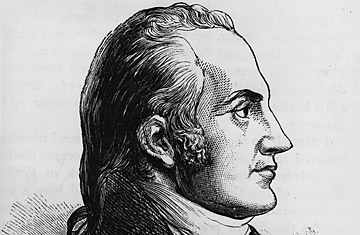
Before Congress passed the Twelfth Amendment in 1804, political parties nominated two candidates for the Presidency and whoever won the most electoral votes would rise to the top of the ticket. In 1800, the electoral college awarded the same number of votes to Thomas Jefferson and Aaron Burr, both of the Republican party. The Federalist-controlled House of Representatives had to break the tie. After several days and 36 roll calls, Burr finally lost to Thomas Jefferson.
Though he served as Jefferson's vice president, Burr is best remembered for murdering political rival Alexander Hamilton four years later during a duel in New Jersey. In 1807, police arrested him for treason after he attempted to invade Mexico and establish his own government there. Burr managed to avoid conviction and soon fled to Europe, where he tried — and failed — to convince Napoleon to help him conquer Florida. He eventually returned to New York City and married a wealthy widow, though their marital bliss was shortlived. After three years, she sued for divorce on grounds of adultery. A judge granted the divorce decree on Sept. 14, 1836 — the same day Burr died.